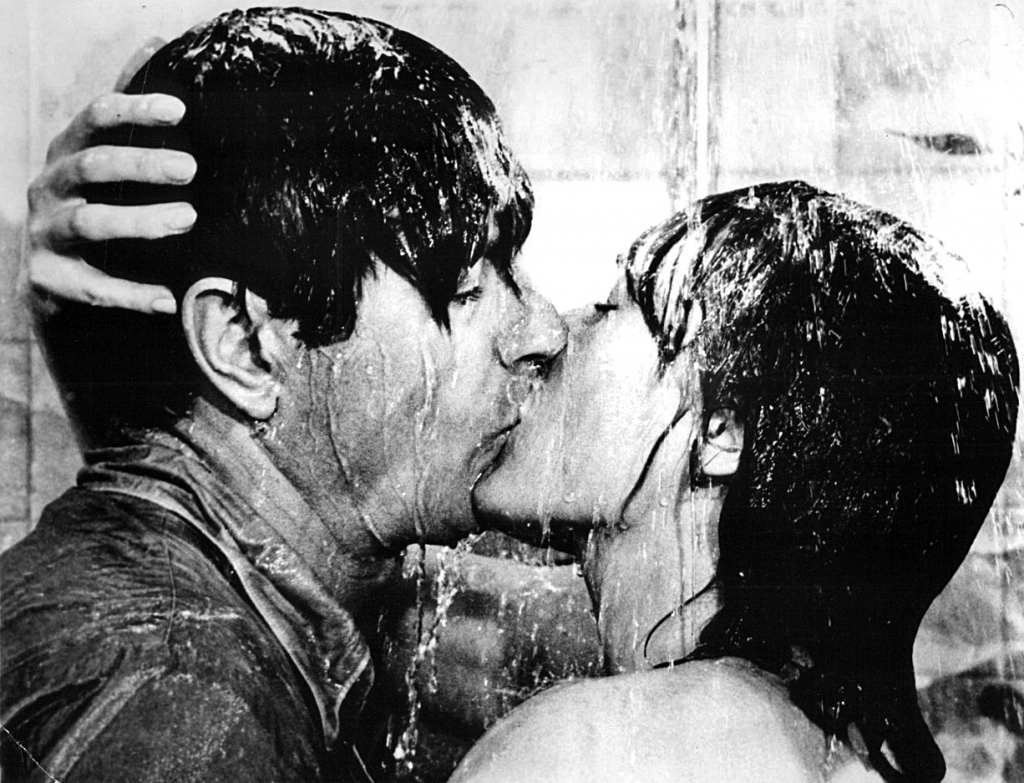While some moviegoers love romantic comedies, the genre’s habit of portraying relationships as a series of unlikely plot twists and happy endings make many of us simply roll our eyes. Researchers, it seems, falls into that second category; psychologists are arguing that romantic comedies have caused people to have unrealistic expectations when it comes to relationships.
But romantic comedies are harmless entertainment, right?
To some viewers, unrealistic depictions of relationships can cause undue stress when their own lives do not mirror those presented in Hollywood films. While filmmakers of the following movies did not necessarily aim to misrepresent the nature of real-world relationships, they may have left the wrong impression. Here are three times that Hollywood was wrong about relationships (spoilers ahead):
1. “Gigli” Implies That Sexuality Can Be Changed by the Right Man
Okay, so no one is arguing that this movie is great, but that doesn’t change the fact that it has some other serious problems when it comes to the messages it is sending out. In this movie, Larry Gigli (Ben Affleck) is a thug in a gang who hires Ricki (Jennifer Lopez) to help him with his task of kidnapping a mentally disabled teen — just wait, it gets worse.
Gigli is frustrated about Ricki’s authoritative demeanor, as well as by the fact that she is a lesbian. Sure enough, he remedies both of these complaints by the end of film by starting an affair with her. As pointed out on WhatCulture, this tacitly “denies women any sexual identity”; her orientation is entirely dependent on whether or not she can find the right man.
This is clearly not rooted in fact. The idea that a homosexual woman could be “converted” by the right man is repulsive, but many people believe that this occurs in reality. Advice blogs for men commonly give tips on how to target lesbian women. As contemptible as this notion is, movies like Gigli spread misinformation about sexuality.
2. “Knocked Up” Thinks That Babies Make the Relationship
In this 2007 film by director Judd Apatow, a familiar story plays out: slacker Ben (Seth Rogen) hooks up with a career-focused woman named Alison (Katherine Heigl). After the drunken encounter, the two realize that they have nothing in common and part ways. Eight weeks later, Alison learns that she is pregnant.
Throughout the rest of the film, Ben struggles to find the commitment and responsibility needed to be a good father. By the end, he resolves to live with Alison, and they presumably live happily ever after. Actually, this plot might be too familiar, since the filmmakers were threatened with copyright infringement lawsuits shortly after release.
Is this a realistic depiction of how this scenario would play out? It’s hard to say, since the female lead never really had a voice. Ultimately, the movie lacks a true female voice. Even Heigl argued that the movie was sexist for this reason.
The question of compatibility between Ben and Alison seems to be absent. The implied message by this narrative arc is that since he failed to use contraceptives, he needed to be responsible by caring for the child. In reality, the question of his parental involvement is not his sole decision.
In a real relationship, where there is no compatibility, having a child will not suddenly make a relationship work. This assumption has led to countless failed marriages. Movies like Knocked Up perpetuate this mode of thinking.
3. “The Parent Trap” Doesn’t Know How Divorce Impacts Children
Hollywood often fails to accurately portray the ways that divorce can emotionally impact children. A good example of this is the 1998 Disney flick “The Parent Trap”. While this movie did well at the box office (ousted only by Spielberg’s Saving Private Ryan), it portrays the effects of divorce in problematic ways.
In this movie, daughters Hallie and Annie (both portrayed by a pre-crisis Lindsay Lohan) are twins separated at a very young age. Hallie remains in America with her father, while Annie is raised in London by her mother. When they are coincidentally reunited over the summer at a camp in Maine, they quickly learn that they are sisters. Over the course of the movie, the sisters plot to reunite their parents.
Is this an accurate or healthy portrayal of how divorce can affect children? No, not really.
Benjamin Hodas, a divorce attorney who often works famous clients, says that celebrity divorces are not drastically different from any regular divorce. However, ego can sometimes get in the way. Hodas states that “if you can get the two parties to put egos and emotions to the side, it makes any divorce easier.”
As a result, it is an unfortunate fact that children are often used by egotistical parents as pawns in marital conflicts. Children are sometimes made to side against one parent, or convey messages on behalf of a parent. The Parent Trap promotes the idea that children should proactively seek a reconciliation. The plot also implies that single-parent families are inherently broken. In reality, neither of these messages are true.
These are a few examples of inaccurate depictions of relationships in movies. Can you think of any other movies that might promote unrealistic expectations in romantic relationships? Leave a reply below!
